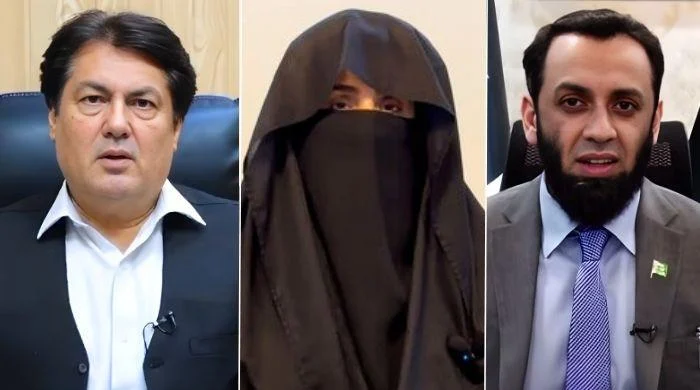PTI Leader Barrister Saif Rejects International Report on Bushra Bibi becomes the centre of yet another political clash as Pakistan Tehreek-e-Insaf (PTI) scrambles to counter a damaging international narrative. PTI Leader Barrister Saif Rejects International Report on Bushra Bibi emerged after Barrister Mohammad Ali Saif dismissed the latest global media report as fabricated, insisting that Bushra Bibi is being targeted through what he calls a coordinated campaign. His statement reflects a familiar PTI tactic of deflecting criticism rather than addressing concerns raised by credible international publications.
Speaking in Peshawar, Barrister Saif claimed that Bushra Bibi’s reputation is under an organised assault, even portraying her as a figure of endurance despite what he termed “unlawful imprisonment”. He argued that political rivals are using “false accusations” to secure an upper hand, a narrative PTI often repeats whenever confronted with evidence-based criticism.
The controversy intensified after The Economist published a detailed report revisiting Bushra Bibi’s influence during Imran Khan’s term. The report outlined her growing political and spiritual influence, her ties with Khan before marriage, and long-standing allegations regarding her involvement in key state decisions, all of which PTI continues to deny. It referenced accounts from family members, former staff, and political insiders who described her prominent role in decision-making, including claims of spiritual practices and influence over government appointments.
PML-N leaders Attaullah Tarar and Talal Chaudhry strongly criticised the PTI founder and his wife, saying Khan had long hidden behind a façade of spirituality to justify political decisions. Tarar said that many of the accusations Imran Khan hurled at opponents are now being discredited on the global stage. He added that PTI has a proven history of making baseless allegations, recalling their conduct during the 2017 protests.
Tarar and Chaudhry both insisted that Bushra Bibi exercised undue influence over government affairs. Chaudhry went further, accusing her of controlling key administrative decisions, including transfers and postings, through what he described as “magical practices”. He revived the controversial “Gogi–Pinky nexus”, linking Bushra Bibi and her close confidant Farah Gogi to financial irregularities, personal gains, and the infamous £190 million settlement case.
The Economist report also detailed internal PTI divisions, revealing how some senior party figures believe Bushra Bibi may still be influencing Imran Khan’s stance on potential political compromise. With both Khan and Bushra Bibi in jail on corruption charges, speculation persists within PTI about the extent of her sway over his decisions.
As criticism mounts, PTI’s defensive posture appears more desperate than convincing. The repeated denials, accusations of political victimisation, and reliance on spiritual narratives continue to cast doubts over the party’s transparency, reinforcing the widespread view that much of its decision-making was influenced by non-political actors and personal networks.


